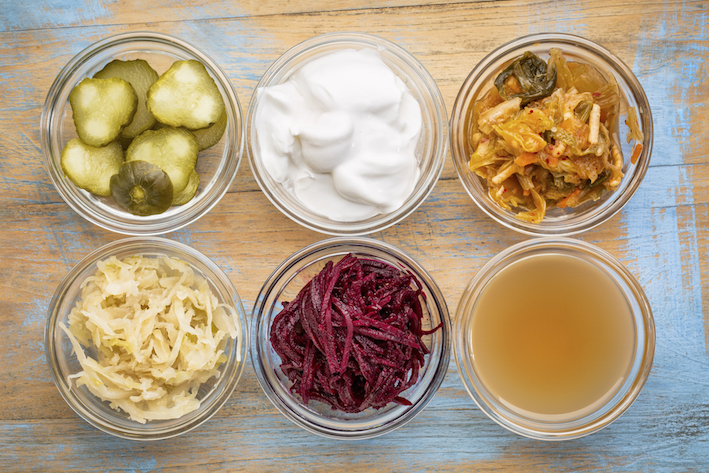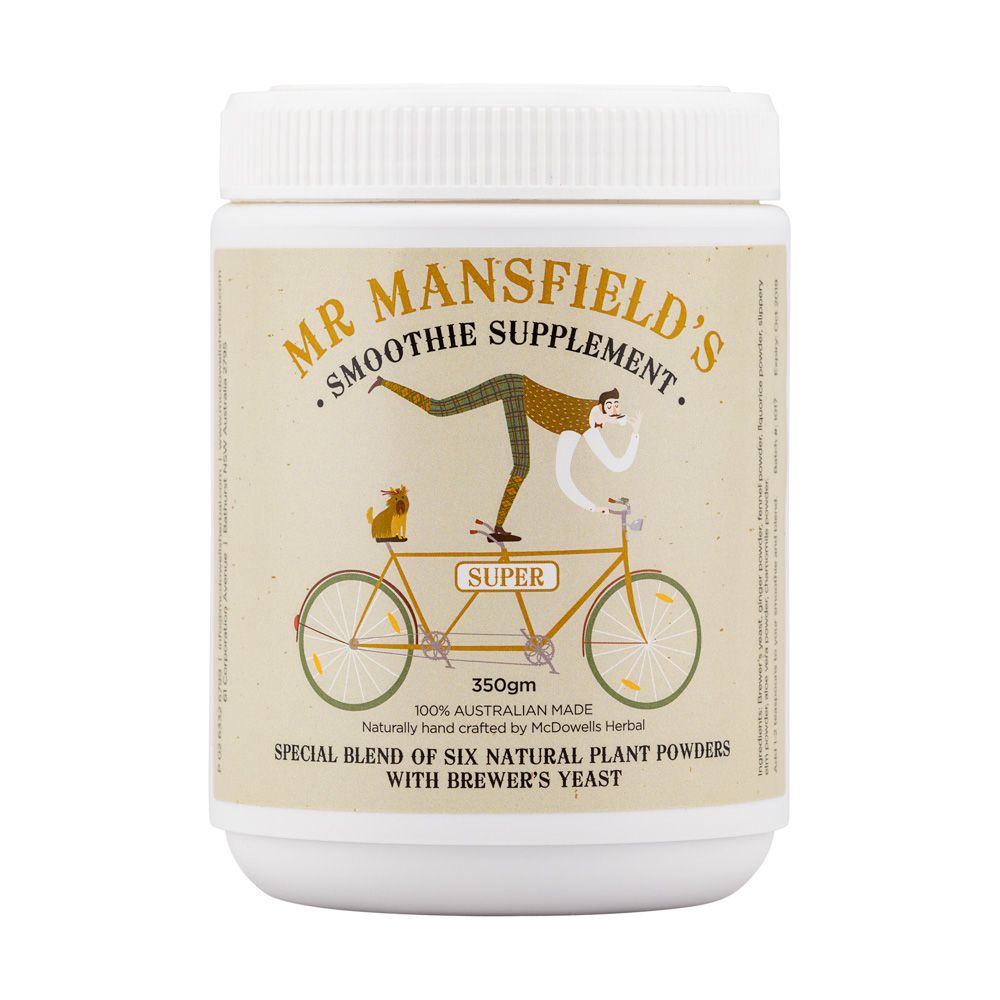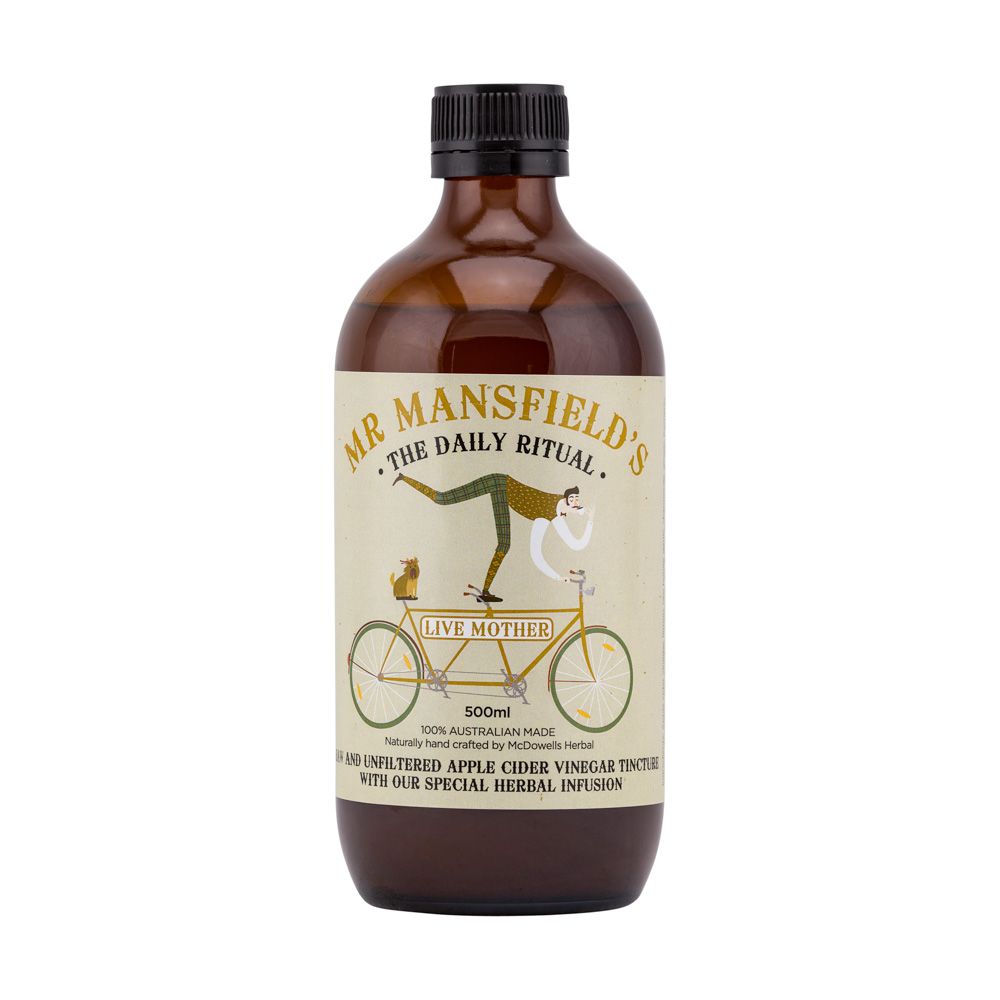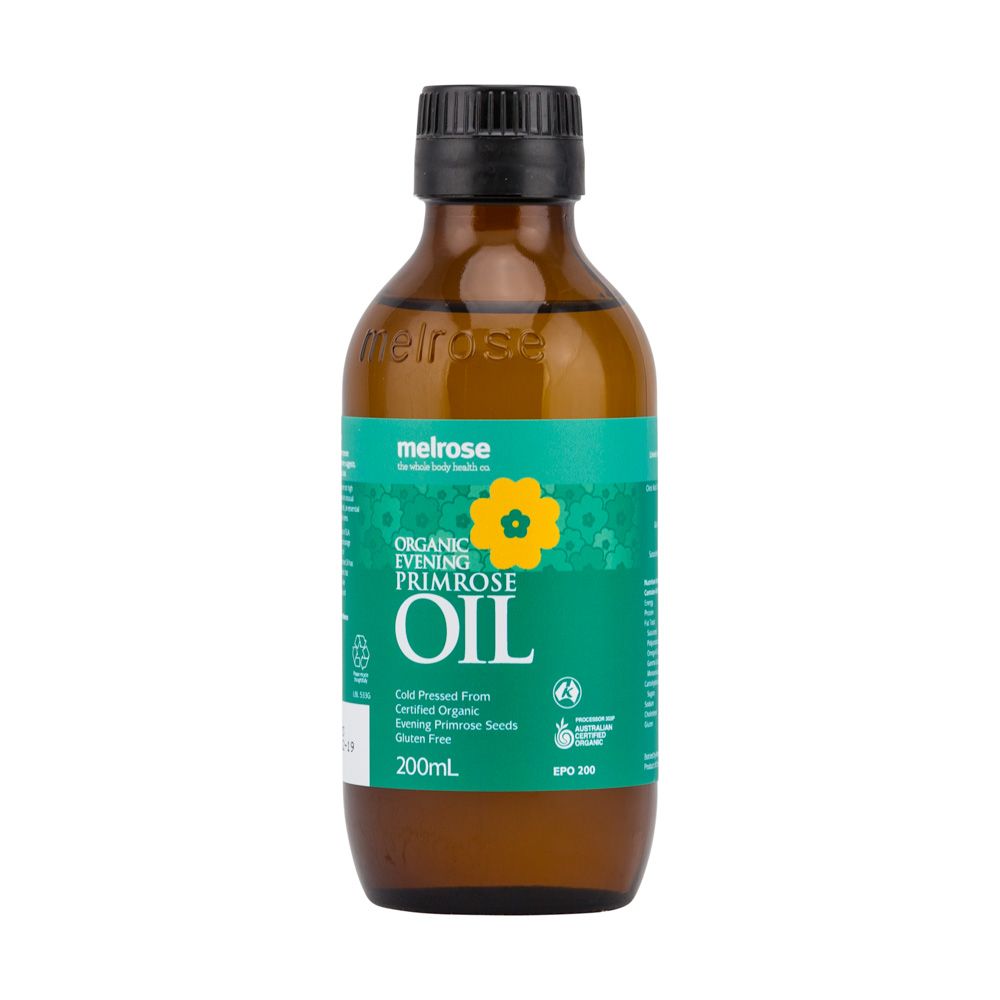We evolved eating fermented foods and eating them provides a food source for the friendly bacteria in our gut. Fermentation is a process of lactofermentation in which natural bacteria feeds on sugar. These sugars produce digestive enzymes. There's a difference between probiotics and prebiotics...

Probiotics come in many different forms such as probiotic yoghurts, vegetables and fermented drinks. While Health Food Stores, Pharmacies and supermarkets often have probiotic powders and capsules (some of which claim to be suitable for infants and small children), they often have questionable amounts of active ingredients.
Prebiotics are an alternative way of changing the levels of the different types of bacteria in your gut using fermented, and fermentable, foods. A prebiotic is a food ingredient that cannot be digested - lots of insoluble fibre are good sources of prebiotics. They encourage growth of the friendly bacteria already in your gut.
Friendly bacteria restore intestinal balance, which results in;
- the prevention of adherence of unwanted microorganisms
- the production of a wide array of antibacterial and antifungal compounds
- improved resistance against bacteria like E.coli, Salmonella, and H. pylori
Prebiotoic foods include:
- Apple Cider Vinegar - healthy acids that
- Sauerkraut - made from cabbage (and other vegetables)
- Natto - japanese dish of fermentated soybeans high in Bacillus Subtilis
- Miso - is a major component of japanese medicine
- Fermented dairy - probiotic rich and usually easiest to find
- Kimchi - the Korean cousin made with cabbage, chilli and spices
- Kvass - common beverage made from fermented barley
- Kombucha - black tea fermented using a SCOBY (symbiotic colony of bacteria and yeast)
- Tempeh - made from whole fermented soybeans
- Kefir - fermented milk, water or coconut water made with a yeast and bacteria starter called 'grains'
- Sourdough bread - real sourdough bread is made with a starter that helps the bread to rise
In many respects, friendly bacteria can be thought of as having "adaptogenic" effects on your immune system. They appear to modulate the nonspecific immune response differently in healthy and hypersensitive subjects.
In order to use the word 'probiotic' on a food label in Australia, a product must have at least 1 million bacteria per gram, but it's thought you need about 10 million bacteria per gram to ensure they make it safely through to the intestine.
But most preparations don't tell you how many live bacteria they contain, Choice found. Manufacturers do their own measurements, and some UK studies have found that many products on the market contained doses of bacteria too low to be effective.




